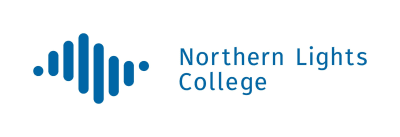
Diploma in Criminology
Northern Lights College

Key Information
Campus location
Languages
English
Study format
On-Campus
Duration
2 years
Pace
Full time
Tuition fees
CAD 10,770 / per year
Application deadline
Request info
Earliest start date
Request info
Introduction
A Diploma in Criminology will be awarded to students who complete the equivalent of two years of required first and second-year courses at Northern Lights College. The diploma is intended to prepare students for entry-level employment positions and for continued studies in academic and professional programs. Relevant areas of work and additional education include Corrections, Criminology, Criminal Justice, Forensic Studies, and Law Enforcement.
Affiliations
Students who complete NLC’s Criminology Diploma with a minimum per course GPA of 2.00 are eligible to apply for block transfer into the third year of the JIBC’s >>Bachelor of Law Enforcement Studies (BLES). Please consult your instructor or program Chair for more details.
Northern Lights College courses transfer individually to other colleges, universities, and institutes in British Columbia. Students will receive transfer credit for courses as noted in the BC Transfer Guide
Important Notes
- Under the terms of an amended block-transfer agreement with Royal Roads University, Northern Lights College students who complete the Diploma will be eligible for block transfer into the third year of a Bachelor of Arts (BA) in Justice Studies at Royal Roads, provided all other entrance criteria are met and space remains available. NLC students should understand that entrance to all programs at Royal Roads University is on a competitive basis.
- Northern Lights College does not have a block transfer agreement with Simon Fraser University's (SFU) School of Criminology. However, the NLC diploma has been designed to meet lower-division requirements for SFU's BA in Criminology. In this case, transfer credit is awarded on a course-by-course basis. Accordingly, NLC students who complete the diploma may also be eligible for admission into upper-division course work in SFU's School of Criminology.
Gallery
Admissions
Scholarships and Funding
The program is eligible for Canada Student Loans for Domestic Students. Visit StudentAid BC to apply for financial assistance online. Note that dual credit students are not eligible for Student Aid.
Curriculum
The Criminology Diploma is comprised of the following 20 courses, ten of which will have been completed as part of the Criminology Certificate:
- CRIM101 Introduction to Criminology
- CRIM103 Psychological Explanations of Criminal and Deviant Behaviour
- CRIM120 Research Methods in Criminology
or SOSC 220 Research Methods for the Social Sciences - CRIM131 Introduction to the Criminal Justice System
- CRIM135 Introduction to Canadian Law and Legal Institutions
- CRIM210 Youth and the Criminal Justice System
or CRIM213 Women and the Criminal Justice System - CRIM230 Criminal Law
- ENGL100 Academic Writing
- MATH104 Introduction to Statistics
or SOSC 207 Introduction to Statistics in the Social Sciences - POLI100 Politics and Government
or POLI101 Government of Canada - PSYC101 Introduction to Psychology I
- PSYC102 Introduction to Psychology II
- SOCI101 Introduction to Sociology I
- SOCI102 Introduction to Sociology II
- SOCI205 Deviant Behavior in Canadian Society
Plus one of:
- ENGL105 Nonfictional Prose
- ENGL110 Introduction to Workplace Communications
- ENGL111 Poetry and Drama
- ENGL112 Prose Fiction; etc.
Plus one of:
- PHIL101 Introduction to Philosophy
- PHIL110 Introduction to Logic and Critical Thinking
- PHIL 111 Contemporary Moral Issues
Plus an additional three electives* at the 100- or 200- Level, chosen from a variety of disciplines.
*Note that Northern Lights College students are encouraged to choose a Gender Studies course and a course that deals with Aboriginal peoples of Canada. Also, note that Northern Lights College's CHEM 170 Introduction to Forensic Chemistry is relevant to the field of Criminology. Chemistry 170 articulates to SFU as unassigned 100-level Chemistry credits.
Career Opportunities
By taking a planned combination of Northern Lights College courses, students may gain entry-level employment in or prepare for continued study in the following fields: lawyer, sheriff, police officer, correctional services, parole officer, probation officer, border services, aboriginal liaison officer, or detachment clerk.